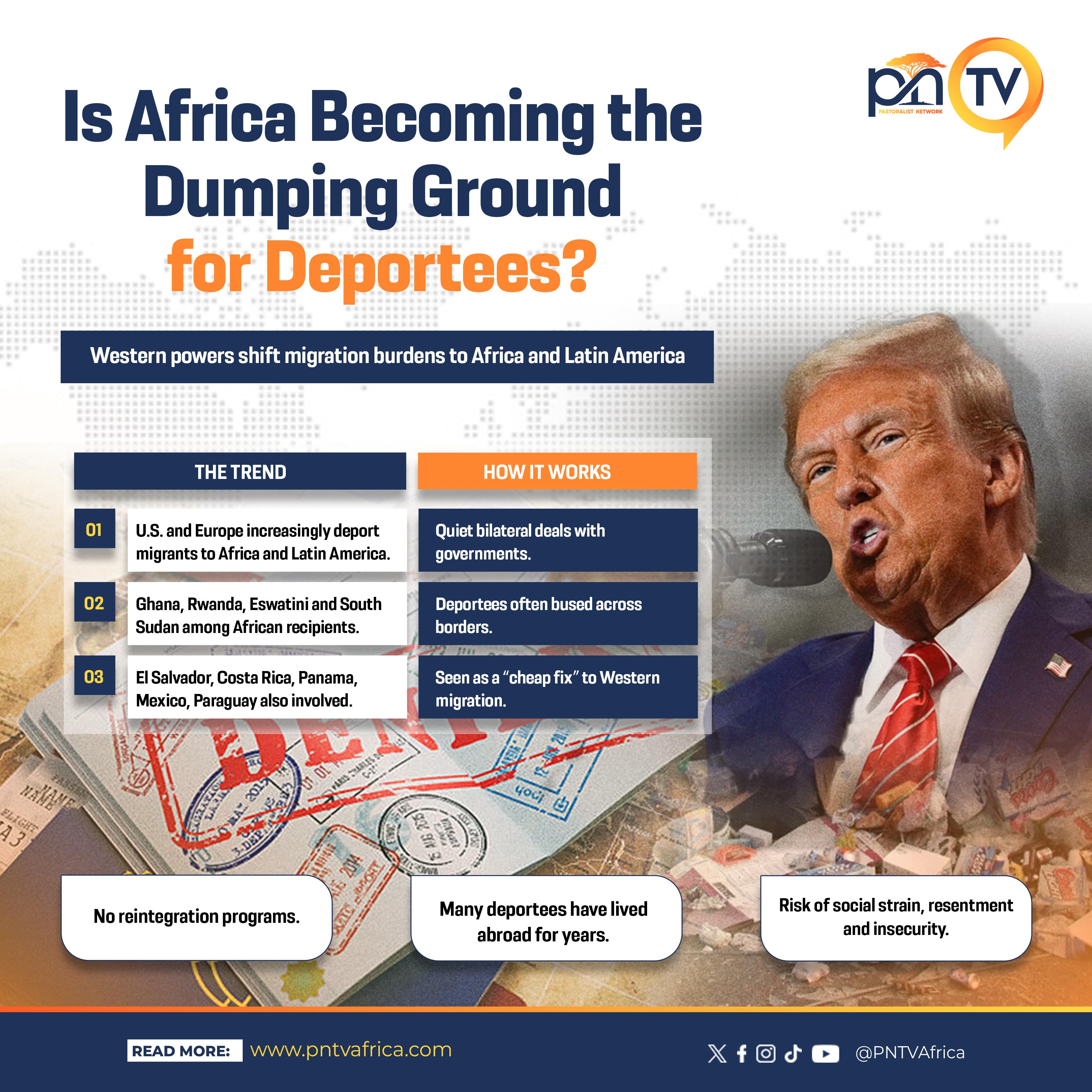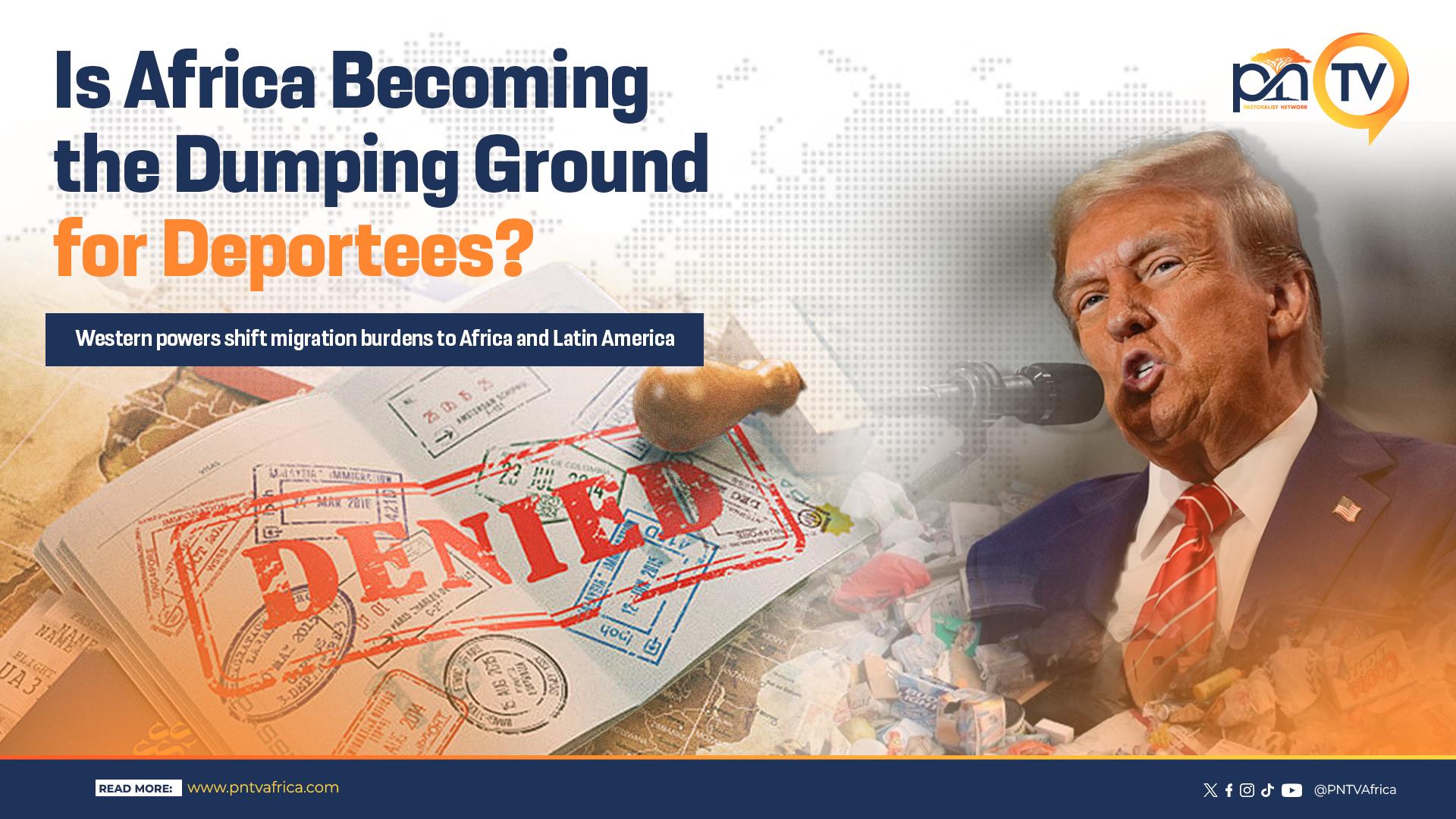A growing trend is raising tough questions about global migration: why are countries in Africa and Latin America being used as destinations for deportees from the United States and other Western powers?
In West Africa, Ghana has begun receiving deported nationals from the U.S. the first batch including Nigerians, a Gambian, and others.
President John Mahama defended the move under ECOWAS free movement protocols, saying West Africans do not need visas to enter Ghana.

The Nigerians were bused onward to Lagos, while the Gambian awaited return home.
At the same time, other African states have been drawn into similar arrangements.
Under the Trump administration, deportation flights were sent to Rwanda, Eswatini, and South Sudan, often under quiet bilateral deals.
And it’s not only Africa. In Latin America, countries including El Salvador, Costa Rica, Panama, Mexico, and Paraguay have also been accepting deportees from the United States, part of a broader outsourcing of America’s migration challenges.
Critics argue that Africa, in particular, risks being turned into the dumping ground of deportees receiving people with no proper reintegration programs, no resources, and no preparation.
Many of those deported have lived abroad for years, some with children who know little of their “home” countries.
Nigeria has rejected similar overtures from Washington, wary of the security and economic costs.
But not all governments have taken that stance, and without a coordinated continental response, African states remain vulnerable to one-sided deals.
Whether in Accra or Kigali, or San Salvador, the story looks similar: wealthy states shifting migration burdens onto developing countries, with little support for reintegration or long-term planning.
The short-term benefit may be diplomatic goodwill with Washington. The long-term risk is social strain, resentment, and instability.
The deportee issue is no longer isolated. From Africa to Latin America, entire regions are absorbing the fallout of U.S. migration enforcement.
For Africa, the bigger question is clear: will the continent accept this role passively, or demand a new framework where its sovereignty and citizens come first?

